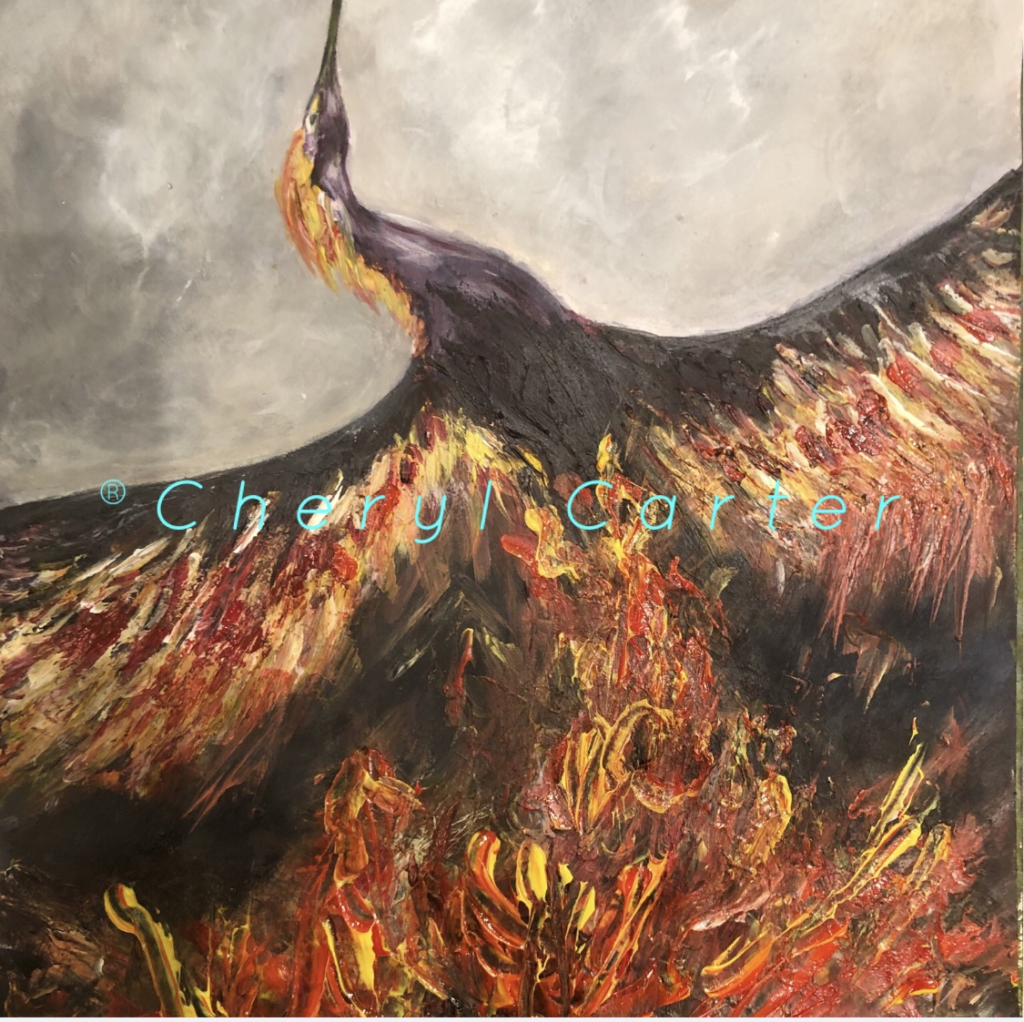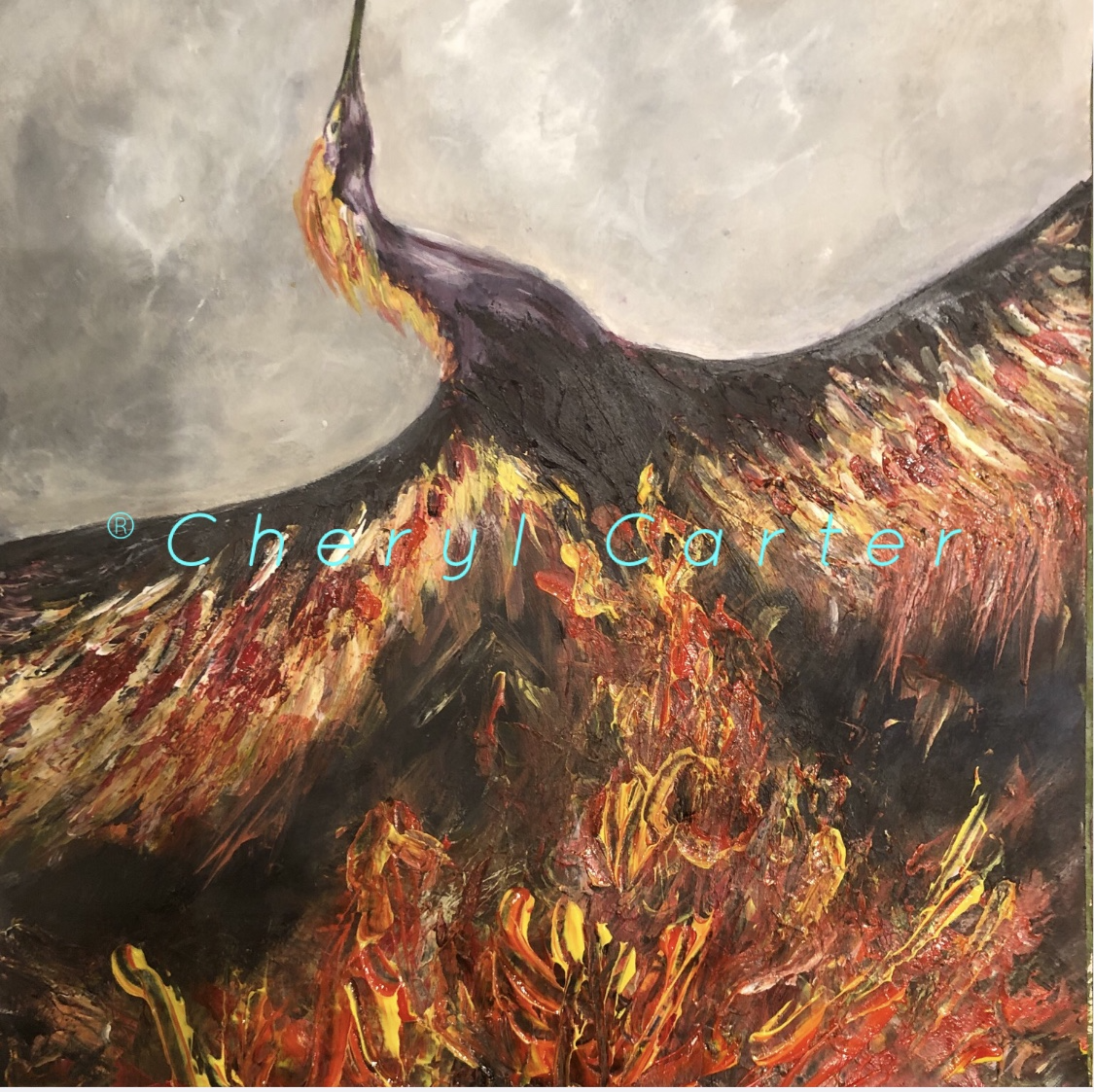
Our Founders story – an interview by Dorota Chioma.
The article was written by Time to Change Kingston Champion, Dorota Chioma. She explores the varying states concerning the mind and mental health and created the Venusian Guide to Kingston – Mental Health Zine as a project for TTC Kingston Hub. This publication explores the town of Kingston from many different perspectives and brings to light some amazing people and services who support mental health in their community.
Here is the interview by Dorota.
I met with Cheryl Carter virtually due to the pandemic restrictions. I found her story very inspiring and her creativity contagious:) This is what she told me in her own words.
My life journey has been marked with trauma. Although some of it is personal, a fair amount of it seems more second-hand, taken on from close family and friends, especially those who have experienced periods of poor mental health.
Living within the same household as someone with a mental illness caused the rest of such distress, fear, anxiety and depression and has dramatically changed our lives forever.
As to did the fact that being deprived from seeing my parents, who I love dearly, left me feeling bereft.
Poor mental health will affect everyone at some stage in their lives irrespective of culture, nationality, gender, religion, financial status or profession; it has no prejudice.
In my case, as in many others, we never saw it coming.
All too quickly, the lives that we had built together and filled with such love and happiness suddenly changed for the worse. It was heart-breaking. Severe depression is disabling and can manifest as self-neglect, suicidal tendencies, manipulation, and both physical and mental abuse.
The insidious nature of depression is such that all too often, individuals live in denial of having it or – just as bad – in denial of needing help to manage it. This was true of the person I know, and it was such a struggle for me, not knowing where to go, to get help for them.
Even when I turned to a GP for help, I was told that there was nothing they could do due to patient confidentiality, which made me feel even more trapped and helpless.
The impact was immense, particularly as the individual’s illness affected their ability to work and ran down the main source of income in the household. This in turn put pressure on the others to keep things going and caused real financial strain.
Although attitudes to mental health issues can seem more open and tolerant nowadays, stigma still persists and friends and family sometimes distance themselves, not knowing the full impact of the situation or how they should respond, leaving you to deal with it all alone.
Out of nowhere, I was not only looking after an ill person and keeping a household running, but also working to keep a roof over our heads and food on our table.
The burden of managing everything soon went from heavy to insurmountable; not only draining me mentally, but also leading me to go without to make sure that others were well looked after.
You could describe it like running on a continuous treadmill…
What a shock to find that everything around me had fallen into chaos and spiralled out of control. The priority was continuity and stability for all – a testing challenge and a bit of a “sink-or-swim” situation.
From carer to creator
My own experiences served as the basis for setting up my business, Every Home Matters, around eight years ago.
The aim of our services is to create a better living environment, nurture physical and mental well-being, reduce loneliness and isolation and give clients a sense of belonging, particularly when maintaining the home becomes the least of their priorities, as motivation and being able to focus becomes increasingly difficult.
Our home services are bespoke and always adapted to meet the needs of the individual.
We cover a wide range of household support, from decluttering and home maintenance to downsizing and moving, with many social workers and other allied professionals working alongside us.
Between ourselves and our network of other organisations and professionals, there is a massive mutual appreciation for the work we each do and a sense of value in what it offers for people who live with enduring mental health problems.
I now work with many clients who are experiencing trauma or loss of any kind including independence or mobility, or who are finding it difficult to come to terms with letting go or accepting change through circumstances such as illness, divorce, employment and empty-nesting.
These factors coupled with pre-existing mental health conditions can bring on circumstantial hoarding and self-neglect, which represent serious safeguarding concerns. Agoraphobia, eating disorders, insomnia and lack of focus are just a few other symptoms I have observed.
Many of my clients have absolutely no one and are living in isolation and loneliness. Hoarding associated with severe mental illness and mental health problems is on the increase, as is circumstantial hoarding, caused by physical illness or lack of mobility.
Every Home Matters has been compared to a family member or friend, stepping in where our clients are lacking in either or both. And like a friend or family member would, we always signpost vulnerable clients to professional organisations who can provide more specialised support and advice wherever we can.
Personally, I found meditation and walking in nature helped immensely with my own trauma and created a sanctuary for me to escape to. Then, three years ago, my very understanding GP, who could not understand how I had coped with all my traumas, suggested I talk to a bereavement counsellor in Kingston.
After my first few sessions, the counsellor said that she loved the way I described my emotions and suggested at the end of our eight-week course that I should get them down on paper in whatever way.
During lockdown in the April of 2020, when the pace of life slowed down and I had a bit more breathing space, I sat down and started to paint. It was so cathartic. This is one of my paintings above called ‘The Rising Phoenix’.
Apart from doing a bit of arts and crafts at home with my sons when they were primary school age, I had not painted since leaving school over thirty years ago. After working full time, having a family and then just trying to get by in the face of adversity, I finally decided to rekindle my passion when my eldest son was disposing of all his old GCSE art materials.
Painting has brought with it a new lease for life and I am now hooked. I find the process very therapeutic and it acts as another form of mediation. By living in the moment, I get so engrossed that I can paint all day long without looking up at the time. Besides expressing our thoughts in words, images can be a marvellous way of releasing them and letting go.
Being in the moment and meditating has helped me so much and even inspired me with visions or topics to paint.
Maybe you have a long-forgotten pastime that you could indulge once again? It doesn’t have to be painting; gardening, cooking and music are just a few other examples of creative outlets that you can use to express yourself and better understand your own headspace.
I hope that by reading about my experience, you too might consider some new and practical ways of therapizing yourself or family members.
We have resources to help you.
Contact Us to get help with your situation or visit our Support Directory.
Please sign our petition here to allow communication with doctors about the health of our loved ones. We need to be able to talk to them. It’s horrible being left out with no way of being able to help our family. Let’s change this.
Please take a moment to sign the petition by our founder, Cheryl Carter.


